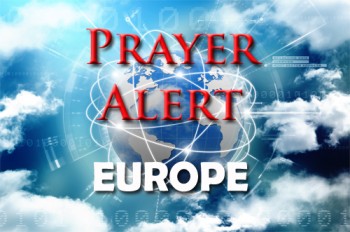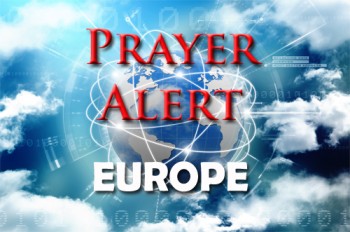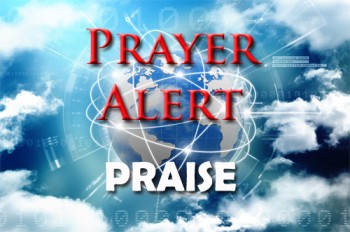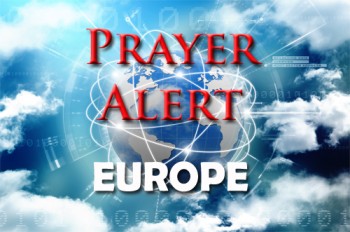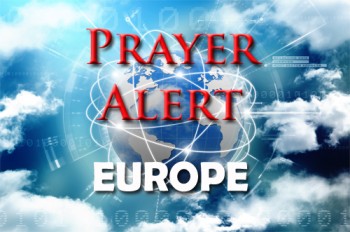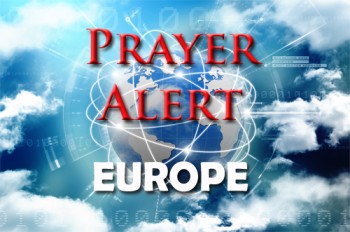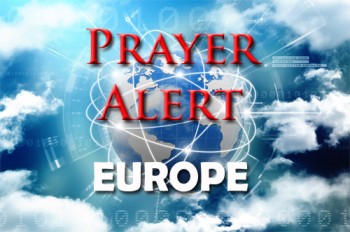Displaying items by tag: Europe
France: secularism sowing hatred and division
Religion is again at the forefront of French public debate. After an 84-year-old former far-right candidate fired shots at a mosque in Bayonne, Emmanuel Macron evoked the French concept of ‘laïcité’ in a speech at the inauguration of a European Centre for Judaism. Defined as the concept of separation of church and state, it has also been at the centre of debates about wearing religious symbols in public. Macron said, ‘Laïcité is a tenet of fraternity that should live in each French person like a compass in their relationship to other citizens - that is essentially a form of French civility. I want to recall it at this moment in our nation's history, where these values of unity and cohesiveness are sometimes distorted and used by those who, seeking to sow hatred and division, use it to fight against this or that religion.’
Europe’s arms exports to Saudi Arabia
European countries temporarily halted arms exports to Turkey after its military incursion into Syria. But Europe’s other arms trading partner, Saudi Arabia, has caused deaths or injuries of 18,000 in Yemen, where 24.1 million need humanitarian assistance. Despite these figures, EU countries still have arms deals with the Saudis. The UK only halted arms exports in June after exports licences were found to be unlawful. Saudi Arabia was France's second-biggest weapons client last year: over €1 billion worth, including armoured vehicles used in or near Yemen. Only Spain suspended arms exports to Saudi Arabia, citing ‘use of this type of armament against a civilian population’. Why would EU countries halt arms to Turkey due to conflict, but not to Saudi Arabia for the same reasons? There could be several reasons, but two stand out - business and alliances.
Brussels: concern for displaced Venezuelans
The EU, along with UNHCR and the International Organisation for Migration (IOM), is organising a high-level international conference on 28 and 29 October in Brussels. They are calling for urgent and concerted action for Venezuelan refugees and migrants. On 23 October Brussels highlighted the dramatic flight of millions of Venezuelans - one of the direst displacement crises in the world, and the largest in the recent history of the region. Nearly 80% of the 4.5 million who left their country have remained in Latin America or the Caribbean. Although countries in the region show solidarity towards them, their capacity and resources are reaching breaking point. The conference aims to raise awareness of the crisis, reaffirm global commitments, and assess best practices.
Spain: pre-election protests
On 10 November Spain will have its fourth general election in four years. The Socialists received the most votes in April’s election, with Catalan separatist parties increasing their number of MPs. Since then, the supreme court has sentenced nine pro-independence politicians and civic leaders to a total of 100 years in prison. These sentences brought thousands of Catalonians onto the streets of many cities, and further violent clashes by far-right counter-protesters. Petrol bombs, blazing barricades, and vandalised buildings are new for Catalan’s pacifist independence movement, but the graffiti on a Barcelona wall read, ‘You have shown us that being peaceful is useless’. Hundreds have been injured in confrontations with security forces. The latest event was a ‘clean protest’ when protesters put detergent in a fountain, as a message to ‘clean up the mess from Spain’. One protester said demonstrations would continue until all the political prisoners were freed. See
Germany: synagogue worshippers saved
As 70-80 worshippers in a synagogue in Halle observed Yom Kippur, their holiest day of the year, a gunman shot at a locked door. The camera at the entrance showed him trying to break into the building, but the door remained closed. God protected them. The attack, streamed live, was a chilling reminder of the mosque attack in New Zealand which was also online in real time. Footage also shows the assailant laying a home-made explosive outside and uttering anti-Semitic statements. He shot and killed a passer-by, and another man nearby. Following the attack, the synagogue congregants were filmed singing and dancing on a bus transporting them from hospital. They finished the concluding prayer for Yom Kippur inside the hospital. The attacker wanted to carry out a massacre and had nine pounds of explosives in his car.
Albania: moving forward
Albania was once the poorest nation in Europe, but poverty has been cut by more than half and the economy continues to show positive signs of growth. Despite having well-known gangsters, it has made notable steps in combating drugs, weapons and human trafficking. Last year the European Commission said that it had shown enough progress towards implementing the required reforms that accession negotiations can begin. Under Communist rule, no religion was allowed. Now, Islam claims twice as many followers as Christianity. Christian believers enjoy worshipping openly in a country that once restricted religious freedom, although most who claim Christianity are reported to be nominal in their faith. Praise God that children’s ministry is drawing whole families into church and multiple generations are coming to faith. Pray for isolated believers to find safe ways to meet with others, and for believers from Muslim backgrounds to be protected from pressure and attack from friends and family.
Romania: challenges for prayer
A legacy of brokenness endures from the days of Ceausescu’s regime, a moral vacuum filled with every kind of social evil. Substance abuse, prostitution, pornography, human trafficking, and challenges to child welfare are widespread. Romania has one of the highest abortion rates in the world, with three or more abortions for every child born. Poverty is still common, with widespread unemployment and economic instability, caused to a large degree by rampant and entrenched corruption. Divisions in government reduce its effectiveness; major strides forward are needed in its legal, education and health care systems as well as police and local administrations. Pray for leadership to have the wisdom to chart the right path and the integrity to implement the right policies. Few pastors have a theological library. Pray for Christian publishing houses and distribution networks to establish a viable, indigenously-funded Christian literature ministry and for more locally written material to be available.
Europe: persecution of Christians
News from across Europe in recent years has been bleak at times. Politicians and pastors have been investigated for ‘hate crimes’ simply for teaching or quoting from the Bible. We have seen medical professionals lose their jobs because they did not want to be complicit in practices that went against their consciences, and we have seen families risk losing their children because they sought to bring them up in accordance with biblical principles. Christians who fled persecution in the Middle East found themselves facing harassment and oppression in European refugee camps, painfully similar to what they left behind. Attacks on churches have risen; last year, in France alone, on average two churches were desecrated every single day. Our God of redemption can turn things around; pray that He speaks to those who are persecuting Christians, like Saul, that they may come to know Him for themselves. May He comfort all who are suffering persecution across Europe.
EU: misspending in the millions
The EU squandered millions on overseas projects last year, including paying for broken toilets in Haiti and providing computer systems for empty offices in Jamaica. Auditors examined the EU’s £138 billion annual budget. The budget for aid and overseas projects was around £720 million in total: 3% of this was misspent on items such as a Mozambican radio drama series. They found that a further £4 billion was misspent because the EU Commission had sometimes ‘assumed’ that cash was spent within the rules. The UK pays £9 billion to the EU annually, and the bloc is demanding £39 billion in a Brexit divorce bill - even if there is no deal. Tory MP Nigel Evans said, ‘While we’re in the EU, we have little control over how this money is spent. In fact, it looks as if no-one is in control.’ 2.6% of the EU’s total budget was misspent last year, up from 2.4% from the year before.
Spain: conflict in Catalonia
Catalonia is a semi-autonomous region in north-east Spain whose history dates back almost a thousand years. The wealthy region has 7.5 million people, with their own language, parliament, flag, anthem, and police force. It also controls some of its own public services. Catalan nationalists have long complained that their region sends too much money to poorer parts of Spain, as taxes are controlled by Madrid. Last October about 90% of Catalan voters backed independence, in a turnout of 43%. Recently Spanish police arrested 9 Catalan independence activists in Barcelona. They face charges of rebellion, terrorism and possession of explosives used in bomb-making. They are associated with the Committees for the Defence of the Republic (CDR), a network of radical groups that advocates direct action to secure independence from Spain. CDR has previously blocked major roads and railway lines. Police believe the activists plan to carry out sabotage and violent attacks on the anniversary of the referendum on independence.

